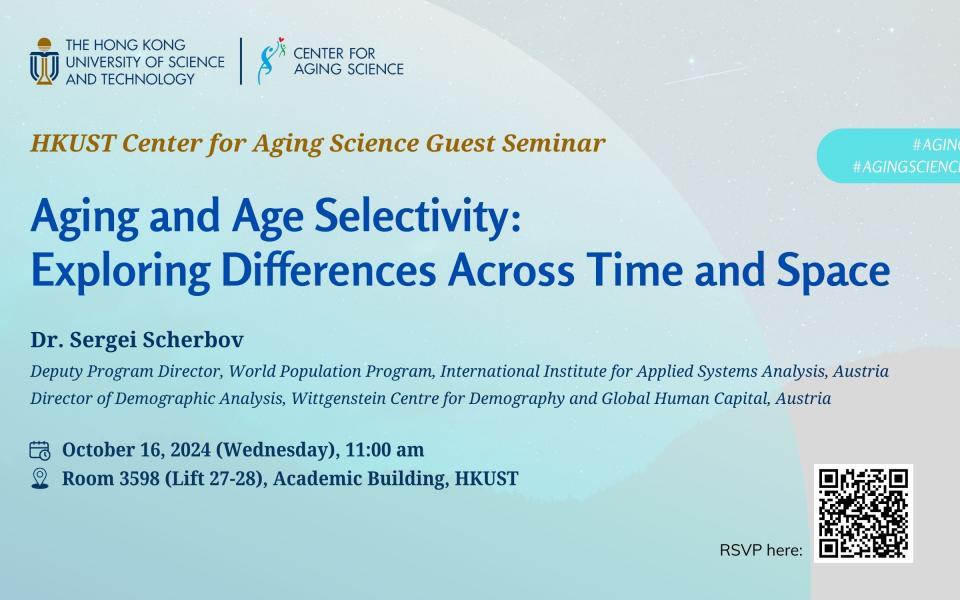Center for Aging Science Guest Seminar - Aging and Age Selectivity: Exploring Differences Across Time and Space
This presentation explores the dynamics of aging and the implications of using fixed chronological age thresholds, such as 65 years, to define old age across different populations and times. It highlights the inadequacy and inconsistency of fixed age thresholds, which fail to account for varying health, life expectancy, and other relevant characteristics among older adults in different regions and eras. The presented research refers to a more adaptive approach of defining old age through the Prospective Old-Age Threshold (POAT), where old age is determined by the remaining life expectancy of 15 years, allowing for more accurate and meaningful comparisons. We further introduce the Retrospective Survival Age Threshold (RSAT), which is the age at which 79% of a cohort has survived, providing a complementary measure to POAT. The analysis spans multiple contexts, including synthetic populations and historical data from several countries with different levels of longevity to investigate the evolving relationships between POAT and RSAT. The findings reveal significant insights into age-selectivity and the changing nature of survival curves, underscoring the importance of dynamic measures in understanding population aging.
Dr. Sergei Scherbov is the Deputy Program Director of IIASA's World Population Program (POP), Director of Demographic Analysis at the Wittgenstein Centre for Demography and Global Human Capital (IIASA, VID/ÖAW, WU), and Leader of the Population Dynamics and Forecasting Research Group at the Vienna Institute of Demography (VID), Austrian Academy of Sciences. He is also Guest Professor at the Department Socioeconomics at the Vienna University of Economics and Business (WU), and Affiliated Professor at the College of Population Studies, Chulalongkorn University, Thailand.
